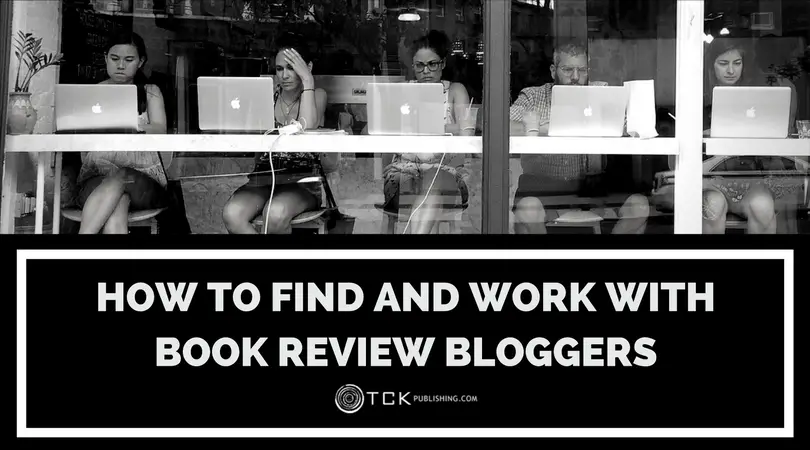Word of mouth is an author’s best friend, right after caffeine and a good writing setup.
That’s because the more people are talking about your book, the more people will talk about your book. We all like to discuss things we’re excited about, and we enjoy it even more when we can talk about them with friends or other enthusiasts.
And once you hear someone you like and trust talk about something they love, don’t you want to give it a try, too?
Social Proof
It’s this feeling of wanting to try what your friends like that make reviews so powerful—they offer social proof, the psychological principle that we’re more likely to try something our personal network has already approved. Having lots of great reviews means that your book has been tried and liked by lots of other people, and that makes even more people think it would be a good idea to read it.
But word of mouth isn’t limited to Amazon reviews—in fact, that’s a pretty narrow way to go about building buzz for your book!
The more places your book appears online, preferably in connection with a great review, the better. You’ll appear higher in search results, have more people exposed to your work, and generally start building better awareness of your brand.
Where do reviews come from, if not Amazon?
Book bloggers!
Reading Communities
These passionate readers have built incredible communities around their love of books, devouring thousands of pages and producing insightful, funny, or pointed commentary.
And reviews on book blogs offer so many more benefits than just a blurb on Amazon. Because they’re focused on community, book bloggers often love to interact with authors, hosting giveaways on their blogs, conducting interviews, and getting creative with book promotion.
So learning to develop great relationships with book bloggers can boost your author career in a huge range of ways.
Here, we’ll take a look at how to find, evaluate, and reach out to book bloggers to start building strong partnerships.
Finding Bloggers
With so many book blogs out there, how can you find the best fit for your book? Who’s posting regularly? How do you narrow it down to the right genre?
There’s lots of ways to locate great book bloggers who will be eager to read your work.
Book Blog Directories
The easiest way to find bloggers is by using a directory built for the task! There are dozens available; the best allow you to search by genre and are continually updated, so that inactive blogs are taken down and new blogs are added.
Here’s 11 of the most helpful and how to use them:
1. Top 100 Book Review Blogs for Readers and Authors
This directory is a gem for anyone who loves data and statistics. In addition to a basic description of each blog, the listing includes the blog’s Facebook and Twitter following and Alexa rank—and you can sort the results so that you can choose the bloggers with the largest following. Blog profiles also indicate how active the blog is, with stats on number of posts per week.
You can see the titles of a blog’s latest posts with just a click and several different genres are available in the drop-down category search at the top of the page.
Best of all, the directory updates every week!
Unfortunately, not all book blogs are friendly to indie authors—many bloggers only review books from Big 5 publishers, and others will only review books they’ve bought, not author submissions.
But not the bloggers in this directory! All love working with indie authors and have clear guidelines for requesting reviews. The directory can be sorted by date added, review genre, and where reviews are posted, and there’s a basic search function.
The listings have a convenient quick link to the blogger’s review guidelines, making it easy to get in touch.
This easily searchable database checks listings every two months to make sure that all the blogs listed are current and active.
Descriptions are written by the bloggers themselves, so they might be more or less informative for authors—some are very short, whereas others explain review preferences, methods, post types, and more.
Search by fiction or nonfiction, then by genre within those categories to find your perfect match.
This comprehensive site is a little hard to use—it doesn’t have a category search function. Let your fingers do the walking by using the Find function on your browser (usually Ctrl-F on Windows or CMD-F on Mac) and type in your genre(s). The descriptions provide a short, but fairly detailed overview of what books the reviewer prefers. You’ll have to go to the site to learn more about submissions policies, etc.
The Book Review Directory doesn’t provide much information about the blogs it lists—it mostly recaps the blogger’s profile and basic interests or review style—but it sprinkles in pearls of wisdom like noting when a blogger uses a format that’s particularly helpful to indie authors or that someone offers interviews and guest post opportunities.
You can search for fiction- or nonfiction-focused blogs via the tabs at the top of the directory, then choose a more specific genre to delve into.
Author services provider Kate Tilton maintains a list of book bloggers who are active on Instagram, providing authors with a way to reach out to reviewers who use their favorite social media platform for a new way of reaching readers.
This fairly basic directory site offers bloggers an opportunity to discuss what they prefer to read and give a little background about themselves. It’s divided up into fiction and nonfiction reviewers, but there isn’t a good way to search for genres inside those categories—you’ll have to scan the listings or use the Find function.
8. Diverse Book Bloggers Directory
Diversity is a big issue in the publishing world, and this directory aims to help bring together book bloggers from diverse backgrounds and those who blog about books celebrating diversity.
Bloggers introduce themselves, their interests, and their blog focus. These descriptions range from very short to comprehensive and often include handy information about what pronouns you should use when communicating with the blogger.
There’s no genre search tool, but the Index offers some additional search options and you can always use the Find command in your browser to look for a genre, like science fiction or romance.
9. Pick a Blogger Member Directory
This directory includes more than just book bloggers, making it perfect for nonfiction authors and those who might want to tie their book in to a lifestyle, health, or wellness audience.
You can search the “Book” category, or branch out to seek bloggers who write about health, fashion, beauty, music, sports, and more.
Profiles are fairly basic, including just the author’s name, preferred topics, and URL.
This simple alphabetical list provides an overview of blogs that love to review children’s, youth, and YA literature. There are no profiles, just the blog title and a link to the blog.
Specifically for YA and middle grade book blogs, this simple list doesn’t offer much in the way of a search function, but it’ll let you find and connect with active bloggers interested exclusively in YA books.
Amazon Top Reviewers
Of course, directories aren’t the only place to find bloggers. Many of Amazon’s most prolific reviewers also have their own book blogs.
Check out the Amazon Top Reviewers listings for who’s most active at present and see stats on how many reviews they’ve written, as well as how many of those reviews have been marked “helpful,” meaning that customers like what they’re doing.
You can click on the reviewer’s username to visit their profile. Many note whether they’re currently accepting review requests and will list guidelines and contact information if they’re open to inquiries.
Google Search
Ah, good old Google search—even with all those directories, it’s still helpful!
Just head on over to Google and type in your preferred genre plus “book reviews” or “blog.”
This is an especially good technique for finding blogs that might cover topics related to your book, but not be exclusively devoted to book reviews. If you’re promoting a yoga book, for example, look for active yoga blogs. Writing about parenting when you have ADD? Search for that, plus “blog”!
Goodreads Reviews
Because the site is devoted to book lovers, it’s natural that book bloggers would flock to Goodreads!
You can find plenty of active, engaged bloggers on the site. Try joining groups devoted to your book’s topic or genre and getting involved with other book lovers, then reaching out to ask about reviews.
You can also search for books that might be similar to yours and read some of the reviews Goodreads users have left. Check out their profiles and see if they also blog and consider reaching out to ask about review requests.
Checking the Fit
While you might find a hundred book blogs that cover your specific sub-genre, not all of them will be the right fit.
Be sure to read several posts on the site to get a sense of how the blogger writes about books and what appeals to them. If someone absolutely hates zombie books, you may not want to send your dystopian zombie romance to them even though their directory profile and review policy states that they love dystopias.
Is there an active community surrounding the blog? Check the comments on some recent posts—are there any? If so, is the blogger engaging in discussion or are the comments just kind of sitting there?
What kind of posts appear on the site? Is it just reviews, or are there author interviews, contests, giveaways, and other ways to get readers engaged and enthusiastic about a book?
Read the review policy. Is the blogger currently accepting requests? Do they have any particular requirements for a book? Do you need to send a certain format or follow some guidelines?
Be sure to get familiar with the site as a whole before getting in touch with any blogger. You want to be able to develop a mutual long-term relationship that will let you partner with your blogger friends to promote this book and future work—and that’s based on finding blogs that value books like yours and that are focused on developing a strong community of readers.
Reaching Out
Once you’ve found the blogs you’d like to work with, develop a plan for reaching out.
After reading each blog’s review policy, get in touch using the method the blogger specifies, whether that’s a contact form or an email.
Send a brief, polite note that’s customized to the individual blogger and that follows any review request guidelines they’ve posted. Be sure to personalize the note, describe why your book matches up with the blog so well, and specify what you’d like to do with the blogger (such as offer a free copy for review, set up a giveaway, write a guest post, etc.).
If you need help writing a query email, check out our handy tips for writing emails that get results!
Do your homework and remember that book bloggers have an audience, too—they’re looking to read books, yes, but they’re also building a community around their reviews and posts. Do what you can to help them build their community and they’ll help you build yours!
Book bloggers can be a great author ally when it comes to growing your audience and reach. Develop strong relationships and you can both flourish!
For more on getting reviews for your book, read on:
- How Self-Published Authors Can Get Professional Book Reviews
- Pre-Publication Copies: Galleys vs. ARCs and Why You Should Care
- The Ultimate Guide To Getting Amazon Book Reviews (Part 1)
Kate Sullivan is an editor with experience in every aspect of the publishing industry, from editorial to marketing to cover and interior design.
In her career, Kate has edited millions of words and helped dozens of bestselling, award-winning authors grow their careers and do what they love!




Thank you Kate for opening up my eyes to a much bigger picture. I am one of the new kids on the block and learning so much along this journey. I just finished my first children’s book called I Am Sequoia, A Pinecone’s Adventure
Once again…Thanks,
Eric
We’re so glad you found Kate’s post helpful, Eric!
Hello, Amazing information shared by you on Book for bloggers. Keep it up and Thank you very much.
Thanks Savan, I’m so glad you found it helpful! :)
Thank you Kate for this excellent article on book bloggers. Writers need reviews too. FYI and your readers, I found Team Golfwell does free book reviews in almost all genres and not just golf, especially children’s books, Y/A, non-fiction, and humor. It doesn’t hurt to ask https://www.teamgolfwell.com/free-book-reviews.html
#freebookreviews #bookreviews
Thanks for sharing, Ric!
One of the best team of reviewers that I have worked with so far is https://usbookreviews.com/ , Please check out their website. They love working with independent authors. Hope this helps. Good luck!
Thanks for sharing, Rona!
Thanks for this! If I may, I would like to recommend as well the https://usbookreviews.com/ , they are a group of passionate readers and reviewers. They give an honest and precise book reviews. Definitely a great team! They love working with independent authors. Check out their website. Good luck guys!
Thanks for sharing, Rona! We’ll check them out :)
The Indie Reviewers List is nice that’s great Directory.
Yep! It’s great that they love working with independent authors :)
Hi Kate Sullivan,
That’s interesting, thank you for Sharing this Wonderful Blog ,it’s very very Helpful to me Great Keep it up.
We’re glad you found the tips helpful, George!
I tried promoting my fantasy novel with so-called “mommy bloggers” who did reviews and giveaways. I got about fifteen positive reviews, but no significant sales. I just thought with all those bloggers reviewing and linking to my site I would see some sales.
Ranking on a search engine’s results pages was easier back in the day. I remember in 99, when my father bought a computer, I put together my first Web page, Wyn’s World of Myth, and it actually ranked as the first result on the first page of a search engine called resource-one. I did a search for “Tolkien” and my page came up before an actual Tolkien site which came in second place. Once upon a time you could land on the first page without knowing anything about SEO. But that was then. The landscape is so different now. Just have to keep trying new things.
Hi Robert! You’re right, it definitely takes a lot of work and research to rank well these days, but it is doable. And SEO rules are always changing. But in case you’d like to learn more about it, we have a list of SEO courses :)